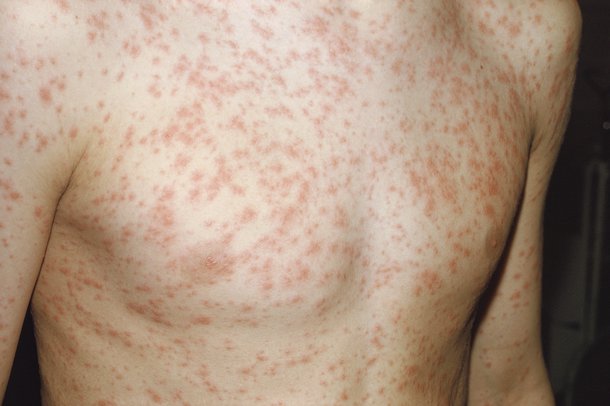Rubella (german measles) is a viral infection that’s now rare in the UK. It’s usually a mild condition that gets better without treatment in 7 to 10 days.
Rubella usually only becomes a serious concern if a pregnant woman catches the infection during the first 20 weeks of her pregnancy.
This is because the rubella virus can disrupt the development of the baby and cause a wide range of health problems, including:
- Eye problems – such as cataracts (cloudy patches on the lens of the eye)
- Deafness
- Heart abnormalities
- Brain damage
Rubella is caused by a type of virus called a togavirus. It’s spread in a similar way to a cold or flu, through droplets of moisture from the nose or throat of someone who’s infected. These droplets are released into the air when someone coughs, sneezes or talks.


